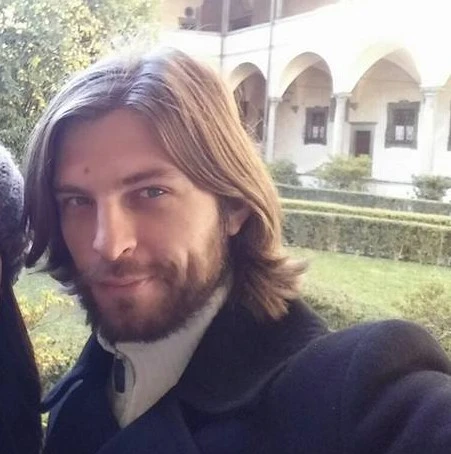Dr. Erik Kuravsky
In my research, I address the theme of human existence in its potential for personal transformation and genuinely spiritual life.
In the traditional systems of metaphysics and theology, we find an assumption of a single universal ground underlying everything that is. This ground is thought of as belonging to things themselves, to God, or to some form of transcendental consciousness. It determines the criteria for freedom, action, ethics, knowledge, and for all meaning. However, after Nietzsche's "death of God," existentialists' revelation of the "absurd," and, most importantly, Heidegger's understanding of Being as an "Event," it became evident that there is no traditional ground on which we could have leaned. Nevertheless, there are still criteria for freedom, meaning, etc. In my work in phenomenology, I look for ways to disentangle our common sense interpretation of such criteria from the traditional metaphysical (and theological) biases and seek to uncover the ways in which genuine spirituality could be achieved. In particular, I engage with the works of Martin Heidegger and Merab Mamardashvili and use their insights to better understand my own existence and what it means for a human being to exist in a thoughtful or mindful way.
We must always keep in our minds the relation of philosophy to our life, that is, try to establish such a relation between us and philosophy that philosophy would appear as some vitally important phenomenon related to our ordinary, everyday life - to the extent that it is conscious; to the extent that we try to live life as conscious beings and as worthy of this epithet. After all, without noticing this, and sometimes noticing it, we perform acts of philosophizing in life itself, since the performance of acts of philosophizing is a condition for a certain kind of life. Only then does it become clear why we need the history of philosophy. We need it, although it may seem paradoxical, precisely because there is no history of philosophy.
- Merab Mamardashvili
Research Interests: Phenomenology, Ontology, Hermeneutics, Philosophy of Religion, Cross-Cultural Philosophy.
Publications in journals:
Kuravsky, Erik. "The 'Phenomenon' in Mamardashvili's Phenomenology of Ontological Maturation." Research in Phenomenology, 2023 [in press].
Kuravsky, Erik. "Thinking and the Danger of Insanity: Two Ways of Reaching into the Abyss." The New Yearbook for Phenomenology and Phenomenological Philosophy, Volume XXI (2023) [in press].
Kuravsky, Erik. "The Neo-Kantian Sources of Heidegger's Overcoming of the Encounter Problem." Gatherings, Volume 12 (2022).
Kuravsky, Erik. "Dislodged Experience as an Overcoming of Reason: Towards a Phenomenology of Beyng." Research in Phenomenology, 52:3, 2022, pp. 375-398.
Kuravsky, Erik. "Attentiveness as an Ontological Practice in Mamardashvili and Heidegger." Circolo Rivista di Filosofia e Culture, vol. 13, 2022, pp. 90:110. (Special issue: Phenomenology and the Practice of Attention.)
Kuravsky, Erik. "Neither Philosophy nor Theology: The Origin in Heidegger's Earliest Thought" Open Theology, vol. 7, no. 1, 2021, pp. 180-207. https://doi.org/10.1515/opth-2020-0159
Professional experience:
University of Erfurt, Faculty of Catholic Theology Lecturer: 2023
University of Erfurt, Faculty of Catholic Theology
Minerva Post-doc Fellow: 2022-2024
University of Erfurt, Faculty of Catholic Theology
Visiting Researcher: 2022
Tel Aviv University, Department of Philosophy
Teaching Assistant: 2017-2021
Tel Aviv University, Excellence Program for HighSchool Students
Lecturer: 2020-2021
Education:
Tel Aviv University, School of Philosophy, Linguistics and Science Studies Philosophy Ph.D January 2022.
Tel Aviv University, Department of Philosophy Master of Arts in Philosophy January 2017 (summa cum laude)
The Open University, Behavioral Science Department. Bachelor of Arts in Cognitive Sciences and Psychology December 2014



